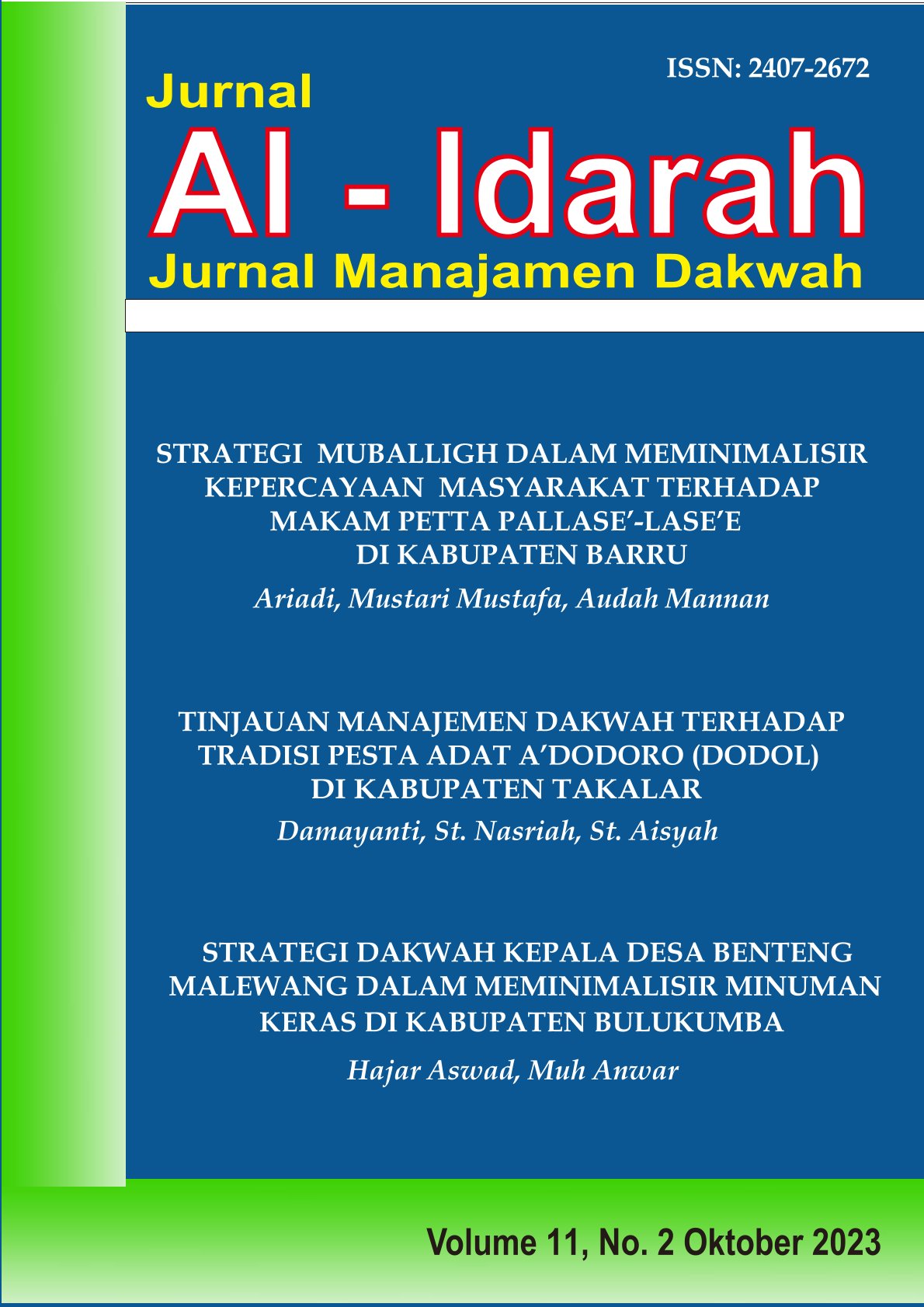TINJAUAN MANAJEMEN DAKWAH TERHADAP TRADISI PESTA ADAT A’DODORO (DODOL) DI KABUPATEN TAKALAR
Abstract
The main problem of this research is how to review the management of da'wah in the tradition of the A'dodoro (dodol) traditional party in Lantang Village, Polongbangkeng Selatan District, Takalar Regency. The main problem is formulated into two sub-problems, namely: how is the process of implementing the A'dodoro tradition in the review of da'wah management in Lantang Village, Polongbangkeng Selatan District, Takalar Regency, and what is the value of da'wah in the A'dodoro tradition in Lantang Village, Polongbangkeng Selatan District, Takalar Regency?
This research uses qualitative research and is located in Lantang Village, Polongbangkeng Selatan District, Takalar Regency. The research approach used is the missionary management approach. The data sources in this study were primary data obtained from informants, namely: the Lantang Village government, traditional leaders of the Lantang Village community, and visitors, as well as secondary data sources, namely: journals, articles, books, the internet, and previous research. Data collection methods used in research are observation, interview, and documentation methods. The data analysis used in this study is data reduction, data presentation, and conclusion.
The results of the study show that the A'dodoro tradition is one of the cultures or habits of the ancestors of the people of Lantang Village, which they still maintain to this day as an expression of the people's gratitude for their crops. The process of implementing the A'dodoro traditional party tradition in a review of the management of da'wah in Lantang Village includes: 1) the planning stage; 2) the preparation stage; 3) the implementation stage, namely: angamme berasa (soaking rice); appasalisiri (cooking coconut milk); akkaleo' dodoro (stirring dodol or making dodol); and a'roko' dodoro (wrapping dodol or dodol packaging); and 4) supervision. As well, the da'wah values contained in the A'dodoro Party tradition include: 1) community solidarity; 2) generosity; and 3) gratitude.
The implications of this research are: 1) it is hoped that it will be able to contribute to the community in Lantang Village, Polongbangkeng Selatan District, Takalar Regency in order to add insight into Islamic teachings so that there is no culture and customs that are misinterpreted by the community referring to polytheism. 2) I hope that the local community will continue to preserve the tradition of the A'dodoro party in Lantang Village, South Polongbangkeng District, Takalar Regency, as one of Indonesia's local cultural heritages.
